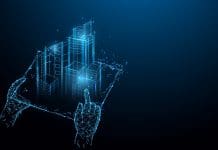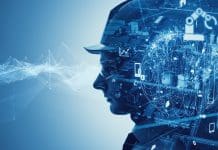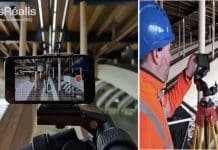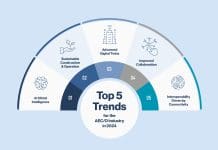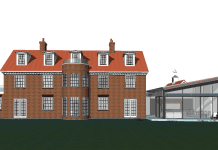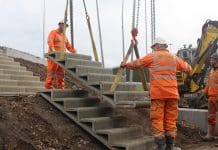Realising the digital transformation of the built environment sector and the benefits of the National Digital Twin will rely on the workforce having the necessary skills. The Centre for Digital Built Britain has published a new framework on the DT Hub to help organisations prepare for the future
Over the past year, we have seen how the Covid-19 response has accelerated the speed and scale of digital transformation across a range of sectors, including in the built environment. But new innovations are irrelevant unless we have the right people and skills in place to use them; digital transformation is about talent and not just technology.
It can be a challenge for companies and HR departments to navigate. The World Economic Forum has estimated that 40% of core skills will change for workers who remain in their roles, and 50% of employees will need reskilling. Gartner has found 53% of organisations can’t identify the skills they need to transform their workforce.
Fit for the future
The National Digital Twin is an ecosystem of connected digital twins where high quality data is shared securely and effectively across the built and natural environments.
A key technical enabler for the National Digital Twin is the Information Management Framework (IMF). The IMF, currently under development, is a common language by which digital twins can integrate to improve decision making and enable better outcomes for people and nature.
To properly realise the benefits of a National Digital Twin we need a workforce with the appropriate skills who, together, can make it happen. This is reinforced by the Construction Leadership Council’s (CLC) first sector-wide skills plan for construction published in March, which highlights the importance of enhancing technical, digital and modern methods of construction skills across the sector as well as traditional competencies.
Enabled by the Construction Innovation Hub, we released a Skills & Competency Framework report, in February, which identifies key roles and skills needed to enable the National Digital Twin.
The framework is intended to help organisations and individuals assess their own needs and consider how to address them. It considers requirements for different roles, from ontologists to data regulators, while emphasising the need for a culture shift towards improving data quality and adopting a systems-based outcomes-focused approach.
It also highlights potential pitfalls and how best to avoid them. For example, the report found organisations have a tendency to be technology-led rather than data-led. As a consequence, this results in an architecture that pushes data towards silos, which restricts ability to integrate data at an enterprise level. This challenge is further compounded when organisations try to share data across organisational and sectoral boundaries.
The report outlines key skills and roles that would enable organisations to improve information management practices leading to better data sharing. We hope it provides users with a useful tool to help assess and identify areas for capabilities enhancement.

A shift in culture
As part of the process to develop the Skills & Competency Framework, the team ran a series of workshops to harness input from experts across the industry. As well as identifying what skills were needed, some key themes emerged.
One was the need for people to understand and be able to communicate the value of data and the importance of data quality and information management quality. Every member of our industry has a role to play in collecting and managing good quality data that generates better information, leading to better decision and enabling better outcomes. Without the right culture in place, both nationally and at an organisational level, supported by fundamental data skills, the scale of benefits offered by a National Digital Twin won’t be fully realised.
Learning through sharing
The Digital Twin (DT) Hub is an online community that sits at the heart of the National Digital Twin programme and a really useful starting point for members who wish to discuss and share with others what has been working for them. There have already been discussion threads where members have pooled training and education resources which have helped them or their employees.
We will be sharing more material on the DT Hub in the coming weeks including a Capability Enhancement Programme, a follow-up to the Skills & Competency Framework, that includes a self-administered survey designed to assess an individual’s competency level. Readers will be able to access a register of training resources from which they may pick to build up their capabilities in the areas of improvement identified by the survey.
Watch an early release video on the Information Management Framework and related skills needed to realise the National Digital Twin.
Data for the public good
In a recent interview at Amazon Web Services re:Invent, Klaus Schwab, World Economic Forum founder and executive chairman, noted that skills and talent have superseded capital as the most important factor of production: “The world of the future is not the world of capitalism, it’s the world of ‘talentism’.”
With a growing digital transformation movement, there are a wealth of new and exciting career and training opportunities for people, regardless of their technical ability, to make our built environment fairer, more environmentally friendly and more productive through the National Digital Twin (NDT).
Find out more at www.cdbb.cam.ac.uk and join the discussion on the Digital Twin Hub Home – DT Hub Community.
Digital Twin Hub
Twitter: @CambridgeCDBB
LinkedIn: Centre for Digital Built Britain




